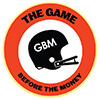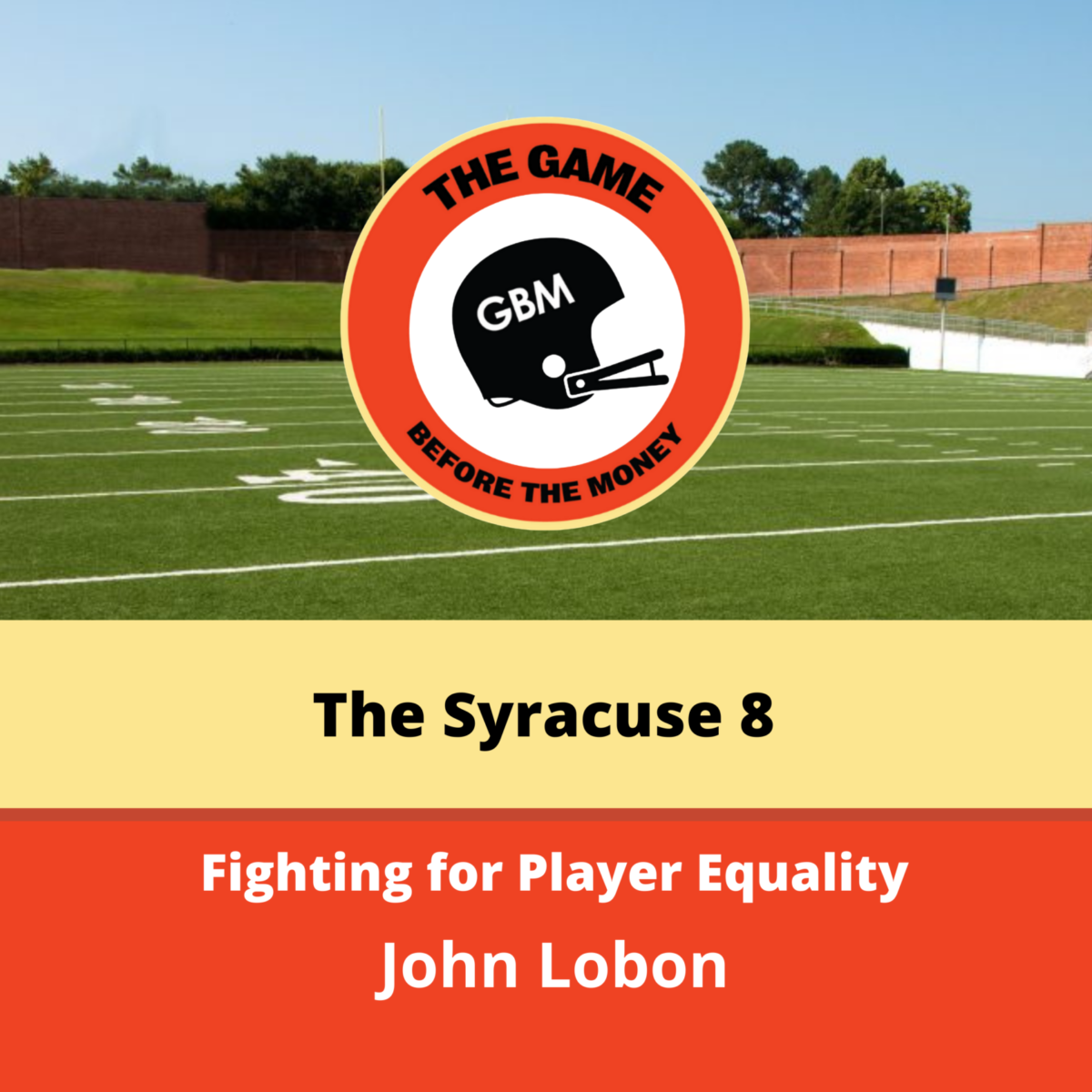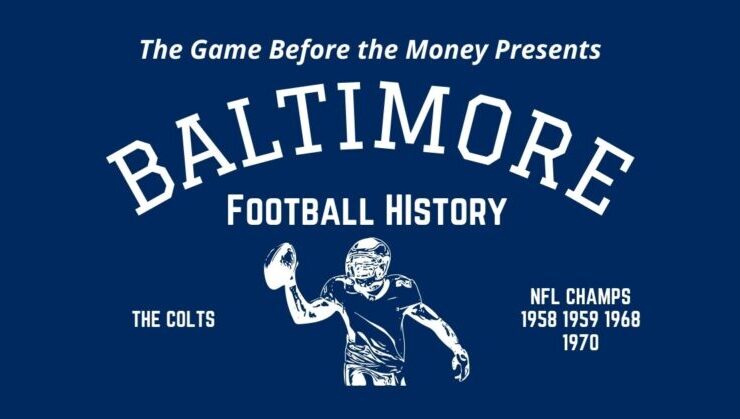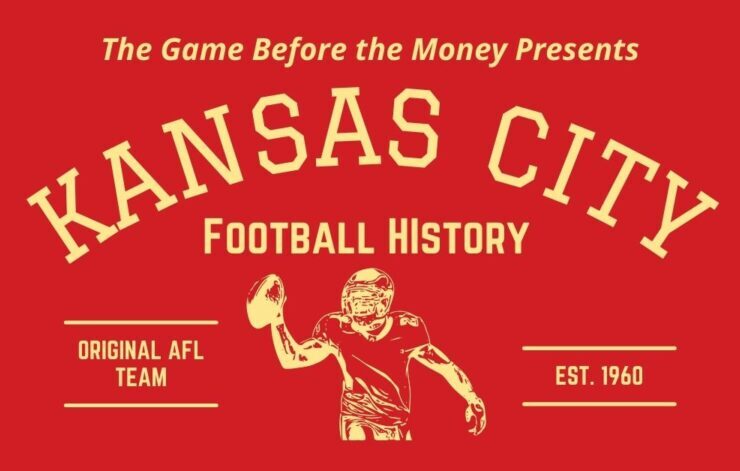The Game Before the Money Podcast took a look at John Lobon’s experience as a member of the Syracuse 8, a group of Syracuse football players who stood up for student-athlete rights and against racial injustice, in Episode 33 of the football history podcast.
Student-Athlete Rights
In 1970, John Lobon stood among a group of Black athletes who raised questions about Syracuse’s athletic department. The players were ultimately suspended from the team for their actions. They missed the entire 1970 season, and most of them never played football again. Shortly after the 1970 season ended, an investigative report ordered by the university’s chancellor vindicated the player’s position, which not only included concerns about race but other issues that affected all student-athletes.
The Syracuse 8 made four demands and eventually boycotted during spring practice of 1970. We’ll look at each of those four demands individually.
Academic Support for Student-Athletes
The first demand we’ll look at was related to academics.
“There were four demands that we made in 1970,” Lobon said. “(One demand) consisted of academic support for student-athletes, which is mandatory now for student-athletes.”
There was also a racial element to this demand. Lobon pointed out one example of how his white teammates received better academic support. “White ballplayers had academic advisors. We were given student advisors.”
He said that affected players’ studies after road games. “When you go away on these away games, you leave on a Friday. So, you missed that day of class. In order to catch up, you’ve got to be brought up. And they had academic advisors. We had student advisors.”
Click here to read about the 2015 Missouri football protest and the Wyoming Black 14 of 1969.
Medical Care for College Football Players
A second demand dealt with the medical care football players received. Here, the Syracuse 8, again made advances that improved conditions for all college athletes across the board.
Lobon said, “We requested optimal medical care for injured players. Normally, you would have an orthopedic (doctor) as part of the program. The medical doctor that we had with Syracuse at that time was a gynecologist. For the football team! A gynecologist.”
He added that the team doctor likely made a teammate’s injury worse. He told about a hand injury that a white teammate suffered. “Kevin had basically crushed his hand. So, he went in to see Dr. (name withheld). So, (the doctor) takes his hand and he shakes it. Then he says to (head coach Ben) Schwartzwalder, I think he needs to go to the hospital.”
Lobon said that Kevin was taken to the hospital. He remembered the eerie reaction of the hospital’s orthopedic doctor. “The orthopedic says to Kevin, ‘Did somebody touch your hand?’ He (Kevin) said, ‘Well, yeah. (The team doctor) took it and he shook it.’ He said, ‘that butcher?’ The orthopedic said that.”
John added that the injury never fully healed. “Kevin’s hand has never been the same since,” he said. “He had fractured it so bad, it was in pieces. With him (the team doctor) shaking it – that moved the pieces around.”
Sponsors Over Merit
The third concern was the belief that players started and were placed in certain positions for reasons other than ability. John noted that some players had sponsors. He believes that those players who had sponsors were given priority over players who didn’t have sponsors. The Daily Orange from September 15th, 1970, noted, “The fact that no black athlete had a community sponsor, a person who helped provide some of the gravy a player accrues to being a varsity football player.”
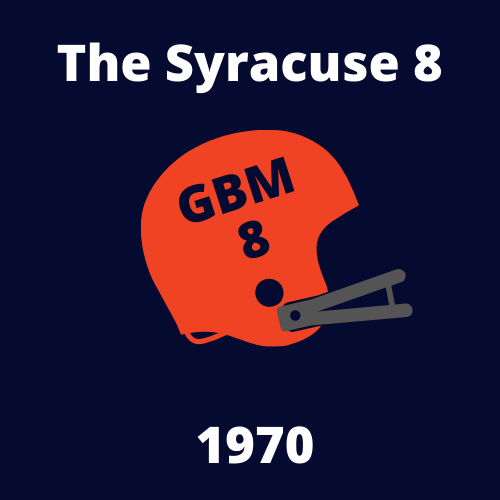
Hiring a Black Assistant Coach
The fourth component of the boycott was a demand for a black assistant coach to be hired. This point sparked the most debate and was the most publicized.
The Syracuse 8 Boycott and Investigative Report
When their demands were not met, the Syracuse 8 boycotted spring practice. They were suspended in the fall.
The September 15th, 1970 edition of The Daily Orange announced that eight players, including John Lobon, were suspended from the football team. A September 22nd, 1970, article in the New York Times stated that New York State’s Human Rights Commissioner, sent Syracuse a telegram requesting that the players be reinstated to the team pending a resolution of the situation. The New York Times article also noted that Syracuse’s Chancellor ordered an independent commission to create an investigative report about the athletic department and the issues raised by the players.
The Syracuse eight were not reinstated that season. For some of them, it was their senior year and they never played another down of football for Syracuse.
The investigative report came out in December of 1970 after Syracuse finished the season at 6-4. John Lobon tells us the verdict, “They put together this 13 member commission. They put together a 55-page report. In the end of the report, they said, the Syracuse 8 was right. Institutional racism exists and is not worthy of an institution of this stature.”
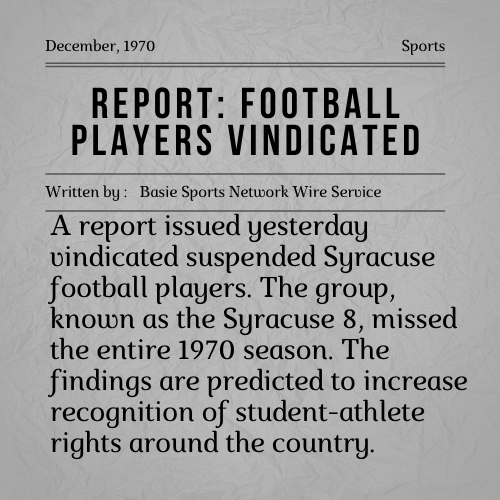
Most of the players never played college football again. None of them were given a chance to play in the NFL. “We were right,” Lobon said. “But we paid the price.”
Looking for a great NFL history book? Check out The Game Before the Money: Voices of the Men Who Built the NFL available at — Amazon.com – Barnes and Noble – University of Nebraska Press
Like football history? Listen to our podcast! Most episodes include stories from former NFL, AFL and college football stars.
